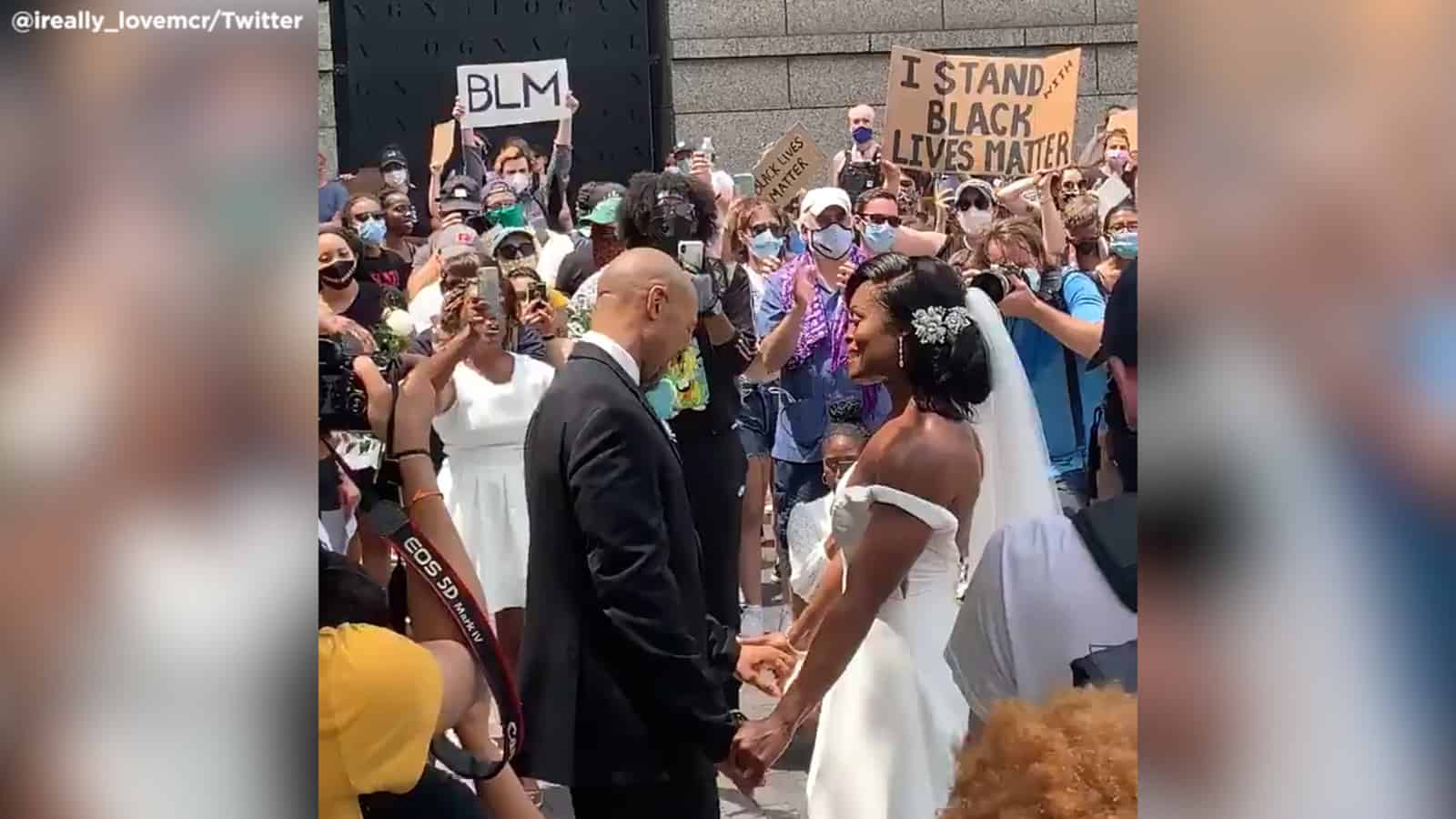Preludes, interludes and readings…oh my!
So just how do these various pieces fit together to form a flowing and meaningful wedding ceremony?
While there are many ways in which you can personalize the structure of your wedding ceremony, the basic wedding format can be broken down into the following simple wedding ceremony outline.
Typical Wedding Ceremony Layout
Typically lasting anywhere from 15 – 45 minutes in length, the prelude is usually accompanied by some light, festive music performed by your ceremony musician(s) as guests arrive and are shown to their seats.
The final guests to be seated are typically the grandparents, mothers and other special family members; a specific musical selection or two can be chosen to accompany their entrance as well.
Who walks the mother of the bride down the aisle?
Traditionally, the mother of the bride is the last guest to be escorted down the aisle by an usher (such as her son) before the processional. However many brides now choose to be escorted by both parents during the processional.
You bridal party now begins to enter the ceremony hall and proceed down the aisle. Depending on the size of your bridal party, you should plan on choosing 2-3 musical selections: one for the bride (or brides/grooms in the case of a same-sex wedding), plus one or two for the rest of the bridal party.
Wedding Ceremony Introduction
Your officiant will often greet your guests and remind them of why they are gathered there today, and might also offer a short sermon or prayer about the meaning of marriage, love, etc. The wedding ceremony opening remarks are meant as a warm welcoming to you and your loved ones.
It is very common to invite loved ones or close friends to read one or more selections that either you or they have selected to add meaning and perspective to your marriage ceremony.
How to introduce a reading at a wedding
Many couples wonder how to introduce readings at weddings, or transition from one reading to the next if you are having multiple readings and/or readers.
One idea is to simply have your wedding officiant introduce the next reader (“We’ll now have a reading by ___________.”) Another option is to have your ceremony musician(s) insert a brief musical interlude (no more than 30 sec. – 1 min.) while a second reader approaches the altar.
Question of Intent
In this segment of the ceremony, you will be questioned by your officiant about your willing consent and commitment to enter into the union of marriage.
You and your fiancé will now be able to share your own promises and hopes for the future, and your commitment to one another. This is a wonderful opportunity to customize your ceremony by writing your own wedding vows.
Exchange of Rings
Unity Candle Lighting (Optional)
In this ceremony, two individual candles are lit earlier in the ceremony (often by the mothers or parents before they take their seats) and then passed to the couple to light a third pillar together, symbolizing the joining of their lives.
Some couples wish to extinguish the individual candles at this point, while others will elect to keep all three burning – signifying that their individuality will carry over into marriage.
Final Blessing
The newly-married couple takes their first walk down the aisle, followed by the wedding party, family and guests; a musical selection chosen in advance will begin following the couple’s kiss or any final announcements.
Other upbeat and festive musical selections should continue until the final guests exit the ceremony area.
Wedding ceremony structure FAQ
What are the parts of a wedding ceremony?
A typical wedding ceremony includes the following elements: prelude, processional, introduction, readings, question of intent, vows, exchange of rings, final blessing, recessional and postlude.
What is the prelude in a wedding ceremony?
Normally lasting anywhere from 15 – 45 minutes in length, the prelude starts when the first guests arrive at the cermony and is usually accompanied by some light, festive music as guests are shown to their seats.
Who walks the mother of the bride down the aisle?
Traditionally, the mother of the bride is the last guest to be escorted down the aisle by an usher (such as her son) before the processional. However many brides now choose to be escorted by both parents during the processional.
How do you introduce a reading at a wedding?
The wedding officiant will generally introduce each reading by a loved one or friend during the wedding ceremony. Sometimes, short musical interludes are performed in between readings.
Next Steps in Planning
This wedding ceremony guide and sample wedding ceremony outline should get you started with formatting your own wedding ceremony structure. Next, you may want to explore the following topics to continue your planning:
Working with Your Wedding Officiant
Additionally, once you start interviewing wedding officiants they should be able to provide you with a sample wedding ceremony script they’ve used in the past. This is a great way to see whether your style gels with theirs, and to get some additional ideas for your wedding ceremony structure.
This content was originally published here.

